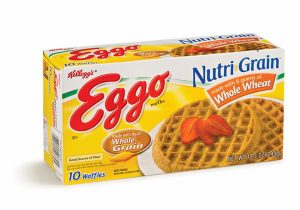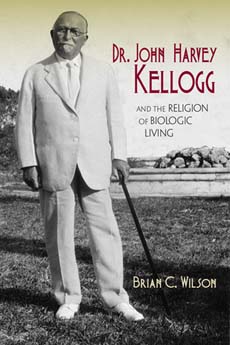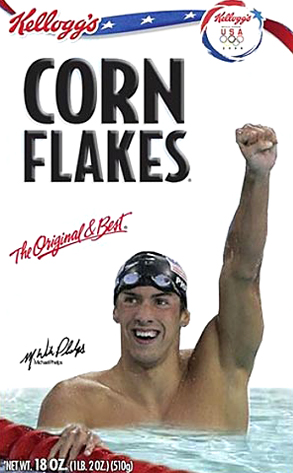In 2008, peanut butter thingies with the nut part sourced from Peanut Corporation of America killed nine people and sickened at least 700 with Salmonella.
 In March 2009, Kellogg’s CEO David Mackay did an outstanding impersonation of Kevin McDonald’s, “How the hell should I know” skit (below) in front of a U.S. Congressional committee.
In March 2009, Kellogg’s CEO David Mackay did an outstanding impersonation of Kevin McDonald’s, “How the hell should I know” skit (below) in front of a U.S. Congressional committee.
“When you look at Kellogg, we have 3,000 ingredients and 1,000 suppliers, I think it’s common industry practice to use a third party” (to verify safety).
Not common enough for Nestle North America, which rejected Peanut Corporation of America’s Blakely plant as a supplier in 2002 after it found the plant had no plans to address hazards like salmonella.
The Atlanta Journal-Constitution reported that in January 2006, Nestle also rejected the company’s Plainview, Texas, plant after finding dozens of dead mice rotting in and around the plant, dead pigeons near a peanut receiving door and live birds roosting inside the plant.
Congressional types also heard that auditors AIB — also known as the American Institute of Baking based in Manhattan (sigh, Kansas) — were hired and paid by Peanut Corp. of America, notified the company in advance when they were coming, how to prepare for inspections and then gave its plants glowing reviews.
An inspector with AIB wrote to the manager of Peanut Corp.’s Blakely, Ga., in a December 2008 e-mail produced by the committee, “You lucky guy. I am your AIB auditor. So we need to get your plant set up for any audit.”
Mackay told the committee a version of, “how the hell could we know?” and that AIB is the most commonly used inspector by food companies in America.
 He also wanted food safety placed under a new leader in the Health and Human Services department, called for new requirements that all food companies have written safety plans, annual federal inspections of facilities that make high-risk foods, and other reforms.
He also wanted food safety placed under a new leader in the Health and Human Services department, called for new requirements that all food companies have written safety plans, annual federal inspections of facilities that make high-risk foods, and other reforms.
Mackay whined that Kellogg’s had to recall more than 7 million cases of crackers and cookies, at a cost of $65 million to $70 million, and that “Audit findings reported no concerns that the facility may have had any pathogen-related issues or any potential contamination.”
Kellogg’s is a multi-billion dollar company asking for a government handout to do what Kellogg’s should be doing – selling a safe product. Kellogg’s helped create the paper albatross that is third-party audits instead of having its own people at plants that supply product which Kellogg’s resells at a substantial profit. Kellogg’s crapmeister told Washington how to strengthen food safety when he couldn’t keep shit out of his own company’s peanut cracker thingies.
 This is a company founded on fairytales and colonic cleansing in Michigan, making its money selling sugar-sweetened treats to kids and their parents, and using a sliver of those profits to sanctimoniously fund so-called research and training, using Michigan State University as their willing vessel.
This is a company founded on fairytales and colonic cleansing in Michigan, making its money selling sugar-sweetened treats to kids and their parents, and using a sliver of those profits to sanctimoniously fund so-called research and training, using Michigan State University as their willing vessel.
With this background, it’s not surprising that, as reported by Dan Flynn of Food Safety News, that, “In mid-2007, Michael collaborated with his brother, Stewart Parnell, who was the President and CEO of Peanut Corporation of America, a peanut processing and manufacturing company, to provide peanut paste to Kellogg.”
P.P sales “was a small operation with two tanker trucks and one customer: Kellogg Company.
From mid-2007 to 2008, Michael shipped peanut paste from PCA’s Blakely, Georgia plant (PCA Blakely) to a Kellogg production facility in Cary, North Carolina.”
P.P.’s tanker trucks, filled with peanut paste, during those months were making 1,200 round-trips to provide the product Kellogg’s needed to put a little dab of peanut paste on all those Keebler PB sandwich crackers.
When anyone from Kelloggs talks about food safety, have a chuckle and move on; or tell them what dickshits they are and how they know nothing about food safety.
Audits and inspections are never enough: A critique to enhance food safety
30.aug.12
Food Control
D.A. Powell, S. Erdozain, C. Dodd, R. Costa, K. Morley, B.J. Chapman
http://www.sciencedirect.com/science/article/pii/S0956713512004409?v=s5
Abstract
Internal and external food safety audits are conducted to assess the safety and quality of food including on-farm production, manufacturing practices, sanitation, and hygiene. Some auditors are direct stakeholders that are employed by food establishments to conduct internal audits, while other auditors may represent the interests of a second-party purchaser or a third-party auditing agency. Some buyers conduct their own audits or additional testing, while some buyers trust the results of third-party audits or inspections. Third-party auditors, however, use various food safety audit standards and most do not have a vested interest in the products being sold. Audits are conducted under a proprietary standard, while food safety inspections are generally conducted within a legal framework. There have been many foodborne illness outbreaks linked to food processors that have passed third-party audits and inspections, raising questions about the utility of both. Supporters argue third-party audits are a way to ensure food safety in an era of dwindling economic resources. Critics contend that while external audits and inspections can be a valuable tool to help ensure safe food, such activities represent only a snapshot in time. This paper identifies limitations of food safety inspections and audits and provides recommendations for strengthening the system, based on developing a strong food safety culture, including risk-based verification steps, throughout the food safety system.






 Kellogg uncritically accepts a BS audit of Peanut Corporation of America and is forced to recall hundreds of peanut pasty cracker thingies, their
Kellogg uncritically accepts a BS audit of Peanut Corporation of America and is forced to recall hundreds of peanut pasty cracker thingies, their